Navigating the Certification Landscape: A Strategic Guide to Career Growth in Strength and Conditioning
Feb 3
Let's start with a question that I hear frequently from both new graduates and experienced strength and conditioning coaches:
"With so many certification options available, how do I know which one will actually advance my career?"
It's a critical question, and here's why:
Recent industry data shows that certified professionals earn 20% more than their uncertified peers during their careers in strength and conditioning.
But perhaps even more telling is this: when I speak with gym owners, athletic directors, and hiring managers, over 70% of them tell me they prioritize candidates with nationally accredited certifications.
The reason?
These credentials demonstrate not just knowledge, but a commitment to professional excellence.
Understanding the Professional Landscape
Think about your current position in the strength and conditioning field.
Perhaps you're fresh out of your Exercise Science program, armed with theoretical knowledge but seeking practical validation.
Or maybe you've spent years in the field of strength and conditioning and are looking to transition into high-performance athletics.
Whatever your situation, you're likely facing a common challenge: differentiating yourself in an increasingly competitive market.
Here's what I've observed over years of mentoring fitness professionals:
The most successful coaches don't just collect certifications – they strategically choose credentials that align with their career trajectory.
Let me explain why this matters.
Perhaps you're fresh out of your Exercise Science program, armed with theoretical knowledge but seeking practical validation.
Or maybe you've spent years in the field of strength and conditioning and are looking to transition into high-performance athletics.
Whatever your situation, you're likely facing a common challenge: differentiating yourself in an increasingly competitive market.
Here's what I've observed over years of mentoring fitness professionals:
The most successful coaches don't just collect certifications – they strategically choose credentials that align with their career trajectory.
Let me explain why this matters.
The Strategic Value of Professional Certification
When we examine the impact of certification on career development, we need to look beyond the surface-level benefits.
Let's break down the four key areas where the right certification can transform your professional trajectory:
1. Professional Credibility and Authority
Think of certification as your professional passport. In high-stakes environments like collegiate athletics or professional sports, your certification isn't just a credential – it's your ticket to the conversation.
It tells potential employers and clients that you speak the language of evidence-based practice and understand the scientific foundations of human performance.
2. Market Position and Earning Potential
Consider this scenario:
Two trainers with identical experience levels apply for the same position.
One has a relevant certification;
the other doesn't.
From my experience working with hiring managers, the certified professional not only has a higher chance of landing the position but often starts at a higher pay grade.
Why?
Because certifications demonstrate a proven knowledge base and commitment to professional development.
3. Network Access and Professional Development
Here's something many professionals overlook:
Certifications often come with membership in professional organizations, giving you access to:
*Continuing education resources
*Professional conferences and workshops
*Mentorship opportunities
*Research journals and industry publications
4. Implementation Confidence
When you're working with athletes or clients, confidence isn't just about knowing what to do – it's about understanding why you're doing it.
Quality certifications provide the theoretical framework and practical skills to make evidence-based decisions in real-time.
Let's break down the four key areas where the right certification can transform your professional trajectory:
1. Professional Credibility and Authority
Think of certification as your professional passport. In high-stakes environments like collegiate athletics or professional sports, your certification isn't just a credential – it's your ticket to the conversation.
It tells potential employers and clients that you speak the language of evidence-based practice and understand the scientific foundations of human performance.
2. Market Position and Earning Potential
Consider this scenario:
Two trainers with identical experience levels apply for the same position.
One has a relevant certification;
the other doesn't.
From my experience working with hiring managers, the certified professional not only has a higher chance of landing the position but often starts at a higher pay grade.
Why?
Because certifications demonstrate a proven knowledge base and commitment to professional development.
3. Network Access and Professional Development
Here's something many professionals overlook:
Certifications often come with membership in professional organizations, giving you access to:
*Continuing education resources
*Professional conferences and workshops
*Mentorship opportunities
*Research journals and industry publications
4. Implementation Confidence
When you're working with athletes or clients, confidence isn't just about knowing what to do – it's about understanding why you're doing it.
Quality certifications provide the theoretical framework and practical skills to make evidence-based decisions in real-time.
Top Certifications: A Strategic Analysis
Let's examine six certifications that I consistently see making the biggest impact in professionals' careers.
I'll break down not just what they offer, but how to strategically implement them in your career development.
I'll break down not just what they offer, but how to strategically implement them in your career development.
1. Certified Strength and Conditioning Specialist (CSCS)
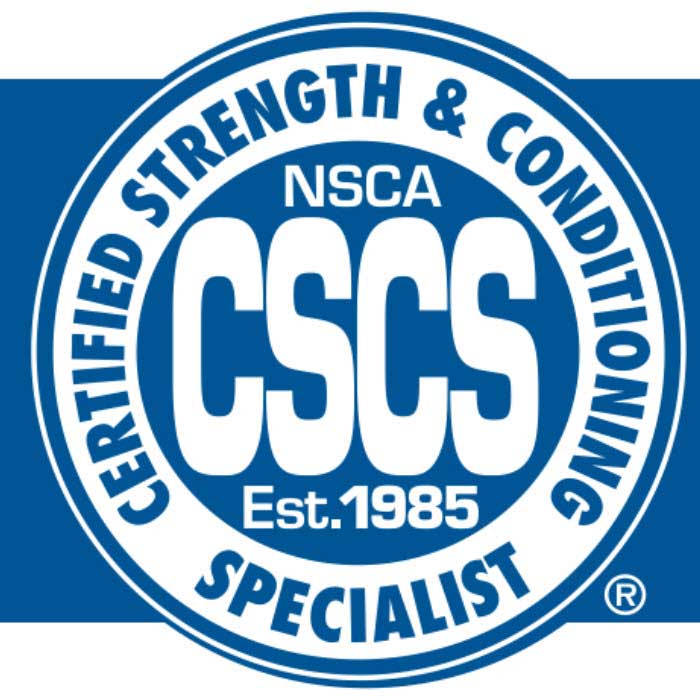
Strategic Value: The CSCS (from the National Strength and Conditioning Association, or NSCA) has long been viewed as the gold standard when it comes to certification programs and certification exams, and is what I consider the cornerstone certification for anyone serious about working in athletic performance.
Here's why:
It combines rigorous scientific knowledge with practical application, making it particularly valuable for those aiming to work in collegiate or professional sports settings.
Key Implementation Principles:
1- Progressive Overload: The certification provides deep insight into programming for athletic development
2- Exercise Selection: Learn to choose and progress exercises based on sport-specific demands
3- Performance Testing: Master the protocols for assessing athletic performance
Getting Started:
-Verify eligibility (bachelor's degree requirement or senior status)
-Obtain the NSCA's "Essentials of Strength Training and Conditioning" textbook
-Create a structured study plan focusing on both scientific foundations and practical applications
-Schedule your exam only when consistently scoring well on practice exams.
(Key tip, take the practice exam as many times as possible!)
Resource: NSCA CSCS Certification
2. NASM Certified Personal Trainer (NASM-CPT)
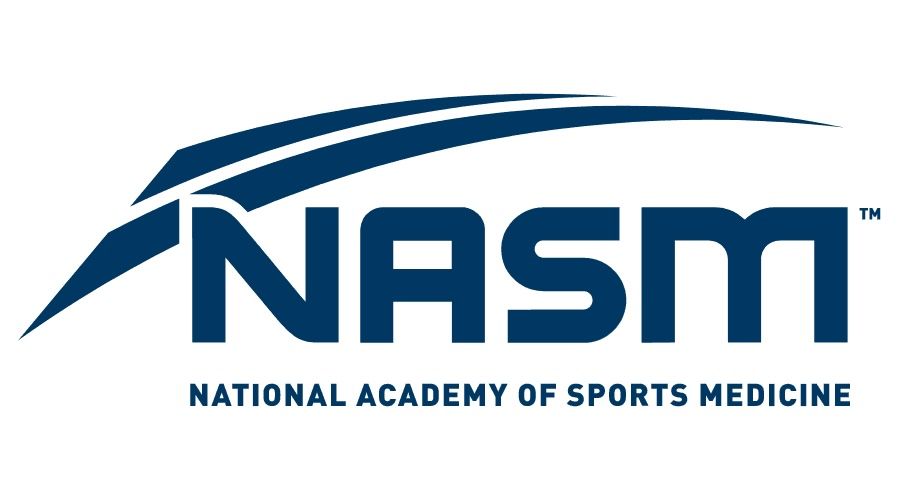
Strategic Value: What sets the NASM-CPT apart is its comprehensive approach to movement science and corrective exercise.
If the CSCS is the gold standard for strength and conditioning foundations and fundamentals, the NASM is the gold standard for personal trainers seeking to elevate their program design approach through the use of movement based corrective techniques.
This certification is particularly valuable if you work with general population clients or athletes needing rehabilitation.
Key Implementation Principles:
1- Neuromuscular Efficiency: Understanding how to optimize movement patterns
2- Progressive Programming: Mastering the OPT (Optimum Performance Training) model
3- Movement Assessment: Learning to identify and correct movement compensations
Getting Started:
-Enroll in NASM's study program
-Focus on understanding the OPT model thoroughly
-Practice applying assessment protocols
-Complete the 120-question exam
Resource: NASM Certification Guide
If the CSCS is the gold standard for strength and conditioning foundations and fundamentals, the NASM is the gold standard for personal trainers seeking to elevate their program design approach through the use of movement based corrective techniques.
This certification is particularly valuable if you work with general population clients or athletes needing rehabilitation.
Key Implementation Principles:
1- Neuromuscular Efficiency: Understanding how to optimize movement patterns
2- Progressive Programming: Mastering the OPT (Optimum Performance Training) model
3- Movement Assessment: Learning to identify and correct movement compensations
Getting Started:
-Enroll in NASM's study program
-Focus on understanding the OPT model thoroughly
-Practice applying assessment protocols
-Complete the 120-question exam
Resource: NASM Certification Guide
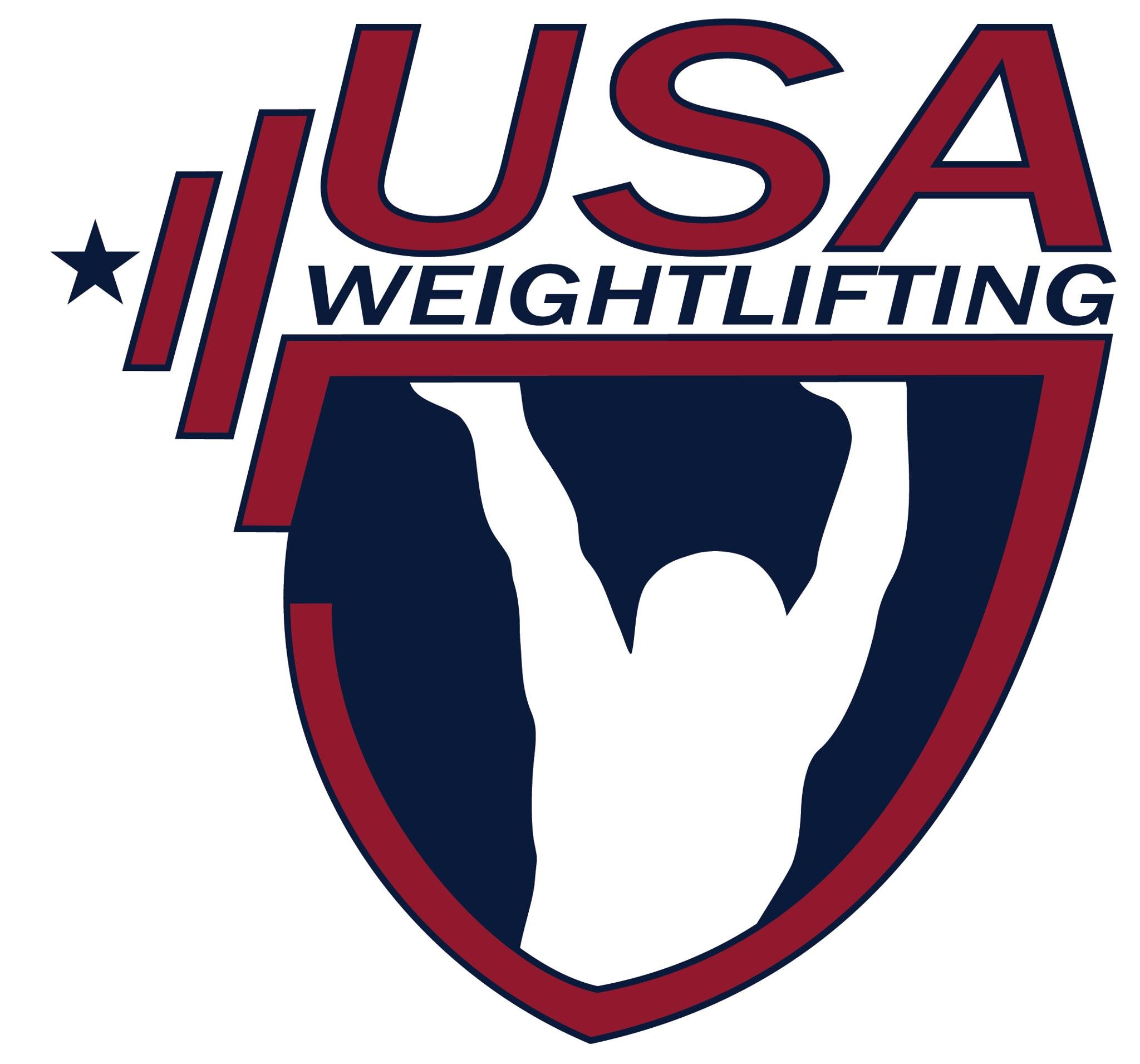
Strategic Value: For those working with athletes where power development is crucial, the USAW certification provides unparalleled expertise in Olympic lifting techniques and programming.
Key Implementation Principles:
1- Technical Mastery: Deep understanding of snatch and clean-and-jerk mechanics
2- Progressive Teaching: Systematic approach to teaching complex movements
3- Program Design: Integration of Olympic lifts into comprehensive training programs
Getting Started:
-Register for a weekend course
-Complete prerequisite online modules
-Attend in-person practicum
-Pass both practical and written assessments
Resource: USA Weightlifting Courses
4. Precision Nutrition Level 1 (PN-1)
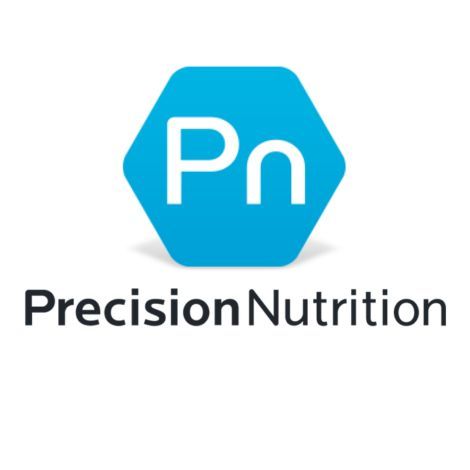
Strategic Value: In my experience, understanding nutrition is often the missing link in many coaches' skill sets.
The PN-1 certification fills this gap with a science-based, yet practical approach to nutrition coaching.
Key Implementation Principles:
1-Behavior Change: Understanding the psychology of nutrition habits
2- Scientific Foundation: Mastering the principles of performance nutrition
3- Client Communication: Learning to effectively coach nutrition habits
Getting Started:
-Enroll in the self-paced program
-Study the comprehensive materials
-Apply concepts through case studies
-Complete the final assessment
Resource: Precision Nutrition Certification
The PN-1 certification fills this gap with a science-based, yet practical approach to nutrition coaching.
Key Implementation Principles:
1-Behavior Change: Understanding the psychology of nutrition habits
2- Scientific Foundation: Mastering the principles of performance nutrition
3- Client Communication: Learning to effectively coach nutrition habits
Getting Started:
-Enroll in the self-paced program
-Study the comprehensive materials
-Apply concepts through case studies
-Complete the final assessment
Resource: Precision Nutrition Certification
5. Certified Functional Strength Coach (CFSC)
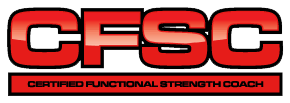
Strategic Value: Mike Boyle has long been revered for his attention to excellent movement coaching and program design that specifically and effectively prepares the athlete for their sport.
The CFSC stands out for its practical, hands-on approach to movement coaching and program design. It's particularly valuable for those working with athletes in team sport settings.
Key Implementation Principles:
1- Movement Pattern Analysis: Understanding fundamental movement patterns
2- Program Design: Creating integrated strength and conditioning programs
3- Coaching Cues: Developing effective coaching communication
Getting Started:
*Register for an in-person workshop
*Complete online coursework
*Practice movement assessments
*Pass the practical evaluation
Resource: CFSC Certification
6. EXOS Performance Specialist (XPS)
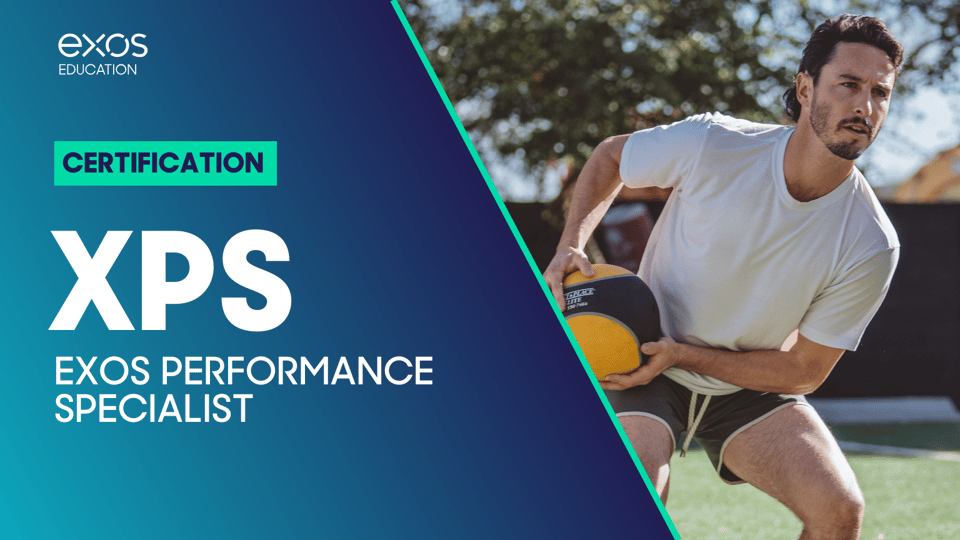
Strategic Value: Long being the leader in Elite Athlete preparation, EXOS's XPS certification is an excellent addition for strength and conditioning professionals who want to work with both athletes and tactical populations.
EXOS has set industry standards working with elite athletes, military personnel, and corporate wellness programs.
Key Implementation Principles:
1- Integrated System: Understanding the EXOS Pillars of human performance
2- Mindset Training: Developing mental resilience alongside physical capabilities
3- Exercise Technique: Refining your coaching eye on a number of different movements within a robust exercise/movement tree
4- Recovery Protocols: Mastering advanced recovery techniques for optimal performance
Getting Started:
*Complete the online prerequisite courses
*Attend the in-person mentorship (if choosing that track)
*Study the comprehensive digital materials
*Pass the final assessment
Resource: EXOS Performance Specialist Certification
The Psychology of Professional Development
Let's explore something fascinating: the intersection of certification and professional psychology.
Dr. Robert Cialdini's research on influence reveals that perceived authority significantly impacts professional credibility.
This explains why certification often leads to increased client trust and better outcomes.
Consider this scenario:
When a potential client or employer sees your credentials, they're not just seeing letters after your name.
They're seeing evidence of your commitment to professional excellence. This psychological principle of authority combines with demonstrated competence to create what I call the "professional trust equation."
Dr. Robert Cialdini's research on influence reveals that perceived authority significantly impacts professional credibility.
This explains why certification often leads to increased client trust and better outcomes.
Consider this scenario:
When a potential client or employer sees your credentials, they're not just seeing letters after your name.
They're seeing evidence of your commitment to professional excellence. This psychological principle of authority combines with demonstrated competence to create what I call the "professional trust equation."
Making Your Decision: A Strategic Framework
When choosing your certification path, consider these key questions:
What's your primary career goal for the next 3-5 years?
Which population do you most want to work with?
What knowledge gaps do you need to fill?
What's your current budget and time availability for study?
What's your primary career goal for the next 3-5 years?
Which population do you most want to work with?
What knowledge gaps do you need to fill?
What's your current budget and time availability for study?
Investment and Return: Understanding the Value Proposition
Let's be practical about the investment required:
*Financial cost: Most certifications range from $500-$2000
*Time investment: 3-6 months of dedicated study
*Continuing education: Annual requirements for maintenance
However, consider the potential returns:
*Increased earning potential (20% average salary increase)
*Enhanced job opportunities
*Expanded professional network
*Greater client trust and retention
*Financial cost: Most certifications range from $500-$2000
*Time investment: 3-6 months of dedicated study
*Continuing education: Annual requirements for maintenance
However, consider the potential returns:
*Increased earning potential (20% average salary increase)
*Enhanced job opportunities
*Expanded professional network
*Greater client trust and retention
Next Steps: Taking Action
Ready to advance your career?
Here's your action plan:
1- Assess your current position and career goals
2- Research the specific requirements of your chosen certification
3- Create a study schedule that fits your current commitments
4- Join professional groups related to your certification choice
5- Begin preparing for your examWant to dive deeper into building your strength and conditioning career?
P.S. - Join me on my podcast at www.automatedstrengthcoach.com/the-road where we regularly discuss career development strategies and interview successful professionals about their certification journeys.
P.S.S- If you're looking to increase your Strength & Conditioning knowledge and transform your program design skills check out: "The Ultimate Speed and Strength Program Design Blueprint" where the education and tools needed to immediately elevate your skills are provided.
Remember: Your certification choice isn't just about adding credentials to your name – it's about strategically positioning yourself for long-term success in the strength and conditioning field.
Choose wisely, study thoroughly, and implement effectively.
The path to professional excellence is ongoing, and certification is a crucial step in that journey.
What's your next move?
Here's your action plan:
1- Assess your current position and career goals
2- Research the specific requirements of your chosen certification
3- Create a study schedule that fits your current commitments
4- Join professional groups related to your certification choice
5- Begin preparing for your examWant to dive deeper into building your strength and conditioning career?
P.S. - Join me on my podcast at www.automatedstrengthcoach.com/the-road where we regularly discuss career development strategies and interview successful professionals about their certification journeys.
P.S.S- If you're looking to increase your Strength & Conditioning knowledge and transform your program design skills check out: "The Ultimate Speed and Strength Program Design Blueprint" where the education and tools needed to immediately elevate your skills are provided.
Remember: Your certification choice isn't just about adding credentials to your name – it's about strategically positioning yourself for long-term success in the strength and conditioning field.
Choose wisely, study thoroughly, and implement effectively.
The path to professional excellence is ongoing, and certification is a crucial step in that journey.
What's your next move?
Copyright © Automated Strength Coach 2024

